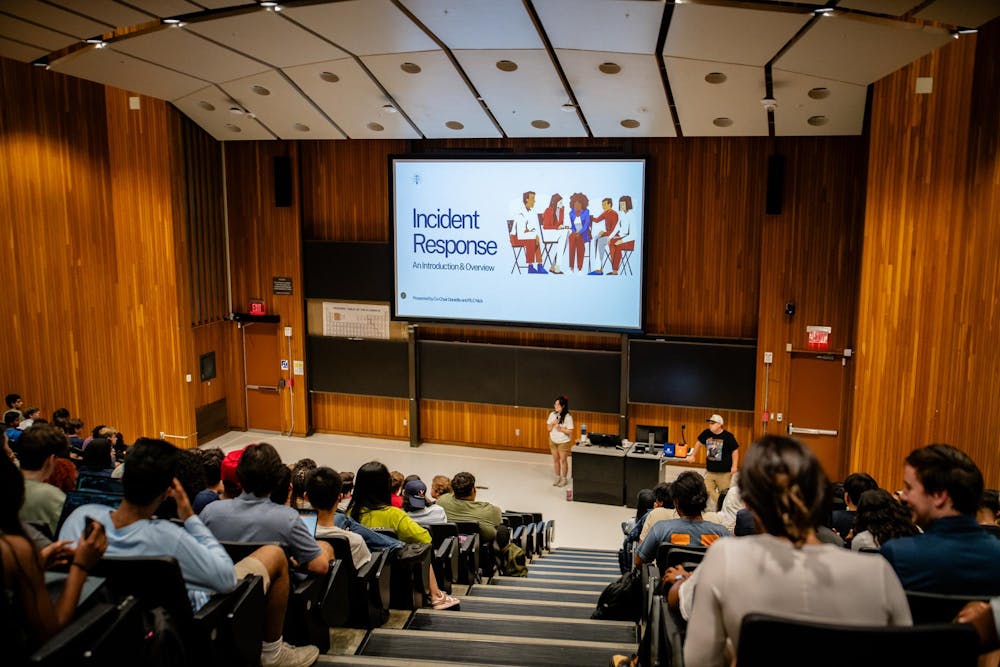Earlier this year, Housing and Residence Life quietly cut a number of training modules concerning diversity, equity, and inclusion for resident advisors. While the impetus of this change may be related to the July 29 guidance document from the Office of the Attorney General, these sudden and undiscussed changes nullify the benefits that prior inclusion and belonging training had for the role of RAs. Moreover, HRL did not transparently inform their own student leaders, intensifying a continuous division between students and the administration in the governance of residence halls on Grounds. In trying to sweep under the rug their debilitation of RAs and their apathy towards students at our University, HRL tangibly disadvantages the residential communities it seeks to build.
Over the summer, HRL conducted its annual orientation program for RAs, older students who live in on-Grounds residence halls and are meant to act as mentors and guides for these students. This orientation program consists of different modules designed to prepare them for the upcoming year. This year, any modules pertaining to DEI and “bias” were removed from the program. In years past, RAs were trained on reporting and resolving what were referred to as “bias incidents,” whereas this year, there is practically no administrative guidance on handling such incidents. No justification was offered for the decision to do so beyond a boilerplate response.
In this case, the decision to nix these modules was inadvisable, as they create an outline to help RAs deal with various situations that may come up when people with different environments live together. Going to college is a difficult adjustment for many, and even for those who settle in quickly, a new environment still poses challenges. Acclimating to those changes accordingly takes time, and it is much easier when someone lives in the hall with the responsibility of explicitly tailoring an environment which confronts bias and comforts those of all identities and backgrounds.
The punitive nature of the removal of this training can be seen when considering the contents of the removed modules. One module dealt with implicit bias, which is an integral lesson to understand as RAs must document concerns of bias in their halls. Ironically, the requirement of documenting these concerns remains, and so cutting the module that educates RAs on how to do this will create an even further continual harm. RAs should be trained to create a welcoming environment for their students, and consciously removing content that enables RAs to reach that goal ultimately does a disservice to their efforts.
Beyond the aforementioned reasons, this training for RAs was never about exclusion — the criticism often levied by those opposed to DEI initiatives. Instead, it was a recognition that every student has a unique background, and that it is important for RAs to take this into account when creating a welcoming environment in their hall. Indeed, empirical evidence exists that indicates socialization with disparate groups increases student performance and happiness. In that respect, the decision to remove the modules was objectively wrong. It makes little sense that RAs, as quasi-chaperones of new students, should not learn effective methods to foster a hall environment where this happens. It makes even less sense that an institution of higher learning, an organization that should hold empirical evidence in high regard when making decisions, would decide not to do so.
Equally important is the fact that RAs themselves were not consulted on the decision. This is especially problematic when the University explicitly claims that HRL is an organization “firmly rooted in the spirit of self-governance,” which is a unique and foundational precept of the University. Not bothering to announce any of the decisions made by HRL to Resident Staff does not evoke the spirit of self-governance, unless the government in question is a banana republic. An organization about students who are designed to be the liaisons of other students during their acclimation period on Grounds has strikingly little say in its own operation, rendering the proclamation on the University’s own website little more than lip service.
The University’s decision to axe the DEI and bias modules makes a statement about the vertebral integrity of the administrators, and it is not a positive one. There will be consequences to the University’s policy of stumbling over itself in its obsequiousness to an unappeasable administration, instead of standing by its students. Continuing to neglect their responsibility to student self-governance and student well being, as the University has repeatedly done, will leave a blemish on its reputation if it continues to acquiesce to the administration’s increasingly asinine strictures.
Conall Castagno is an opinion columnist who writes about politics for The Cavalier Daily. He can be reached at opinion@cavalierdaily.com.
The opinions expressed in this column are not necessarily those of The Cavalier Daily. Columns represent the views of the author alone.







